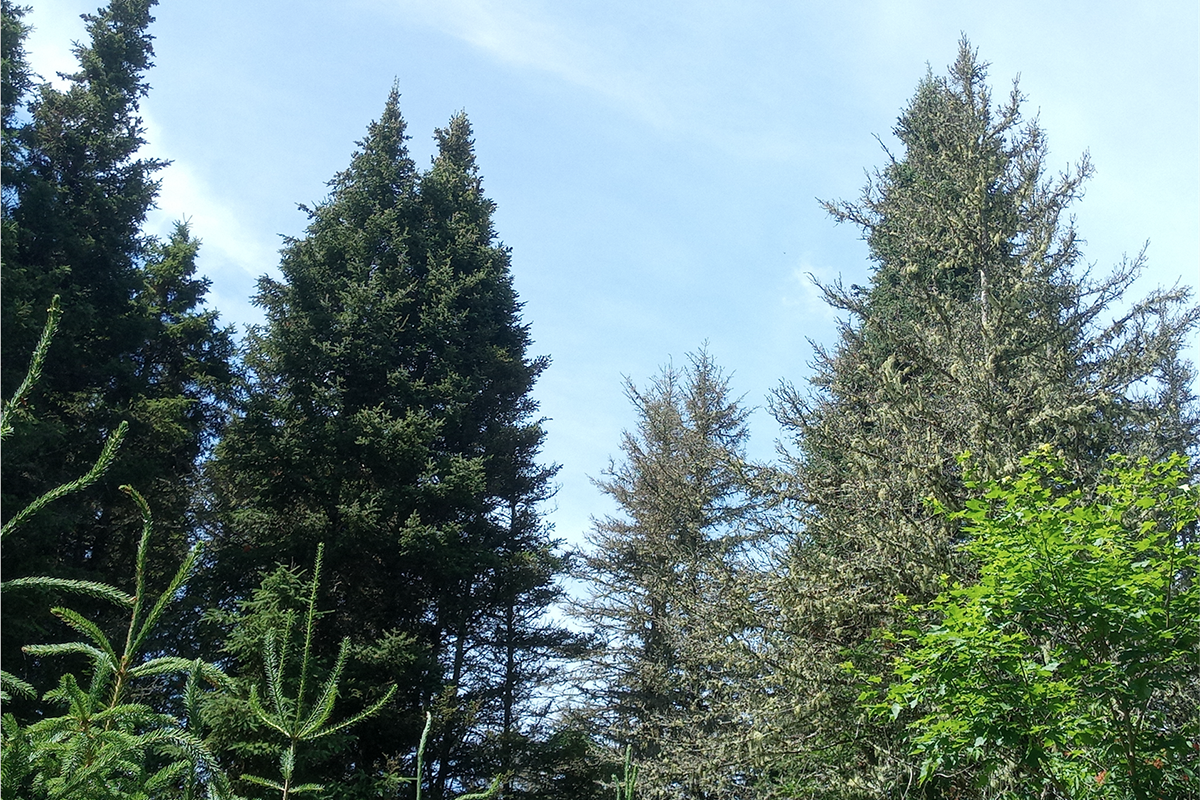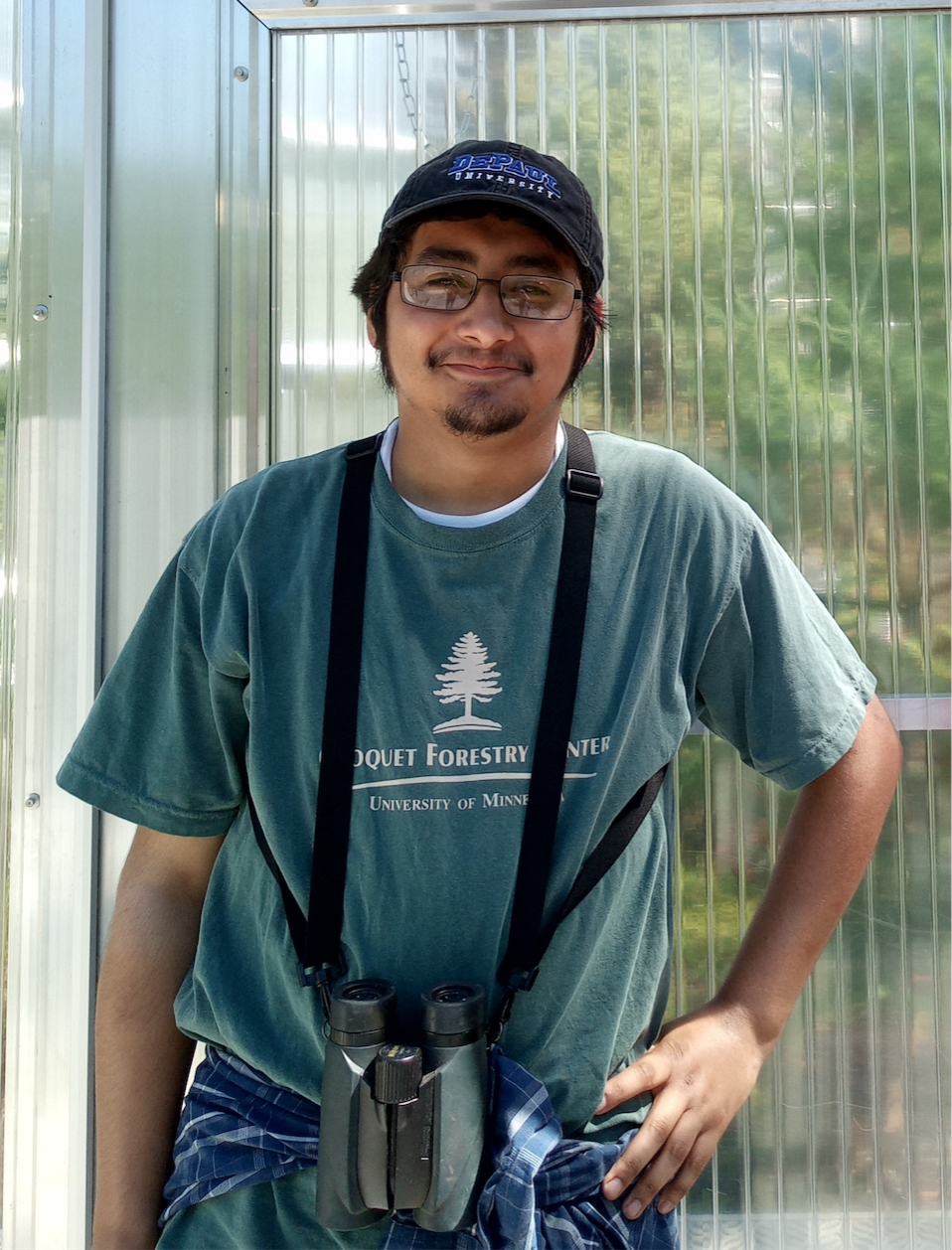 Over the summer, biology student Cristian Corona conducted field work on forest ecology in northern Wisconsin. He will present on his findings at DePaul's 17th annual Undergraduate STEM Research Showcase on Nov. 8. (Image courtesy of Jalene LaMontagne)
Over the summer, biology student Cristian Corona conducted field work on forest ecology in northern Wisconsin. He will present on his findings at DePaul's 17th annual Undergraduate STEM Research Showcase on Nov. 8. (Image courtesy of Jalene LaMontagne)Cristian Corona, a third-year biology student at DePaul, has always been passionate about conducting research. A National Science Foundation Research Experience for Undergraduates project with associate professor Jalene LaMontagne is giving him the opportunity to gain hands-on experience in the field, studying forest ecology in northern Wisconsin. He will present his findings at DePaul’s
17th annual Undergraduate STEM Research Showcase on Nov. 8.
 Cristian Corona conducted field research with Jalene LaMontagne, an associate professor in the College of Science and Health. (Image courtesy of Jalene LaMontagne)
Cristian Corona conducted field research with Jalene LaMontagne, an associate professor in the College of Science and Health. (Image courtesy of Jalene LaMontagne)
“I’m interested in animals and carnivores, but this particular project is focused on plant and forest ecology,” Corona says. “I’m so thankful to have had the opportunity to practice and learn from this experience as an undergraduate.”
He first learned about the NSF REU program from LaMontagne, a faculty member in the Department of Biological Science in the College of Science and Health.
“The NSF REU program aims to broaden participation in STEM fields,” LaMontagne says. “Our lab studies population ecology. In particular, we are interested in understanding patterns and causes of population size changes over time and space. We study a variety of species, including animals and plants, and conduct research in forests and in urban areas.”
While LaMontagne’s research spans across sites in Wisconsin, Michigan and Minnesota, Corona’s project focused on counties in northern Wisconsin.
“I looked at the spruce budworm, which typically attacks coniferous balsam fir trees,” Corona says. “Professor LaMontagne started to notice the insects attacking white spruce trees instead, and it was my job to quantify the proportion at which white spruce trees were being consumed over the other trees.”
With his fieldwork finished, Corona is now analyzing the collected data. While Corona is interested in forest ecology, a topic he hadn’t considered until this research opportunity, he still hopes to pursue animal ecology in graduate school.
“I grew up interested in animals because of my dad’s enthusiasm for wolves,” he says. “Eventually I’d love to research the conservation of wolf populations in the United States, Mexico and Canada. Historically, wolf populations have been decimated by European colonization. I want to both conserve and reintroduce wolf populations and their ecosystems across North America.”
Corona has started to write a paper on his findings in northern Wisconsin, which will beome part of an article submitted to a scientific journal with LaMontagne.